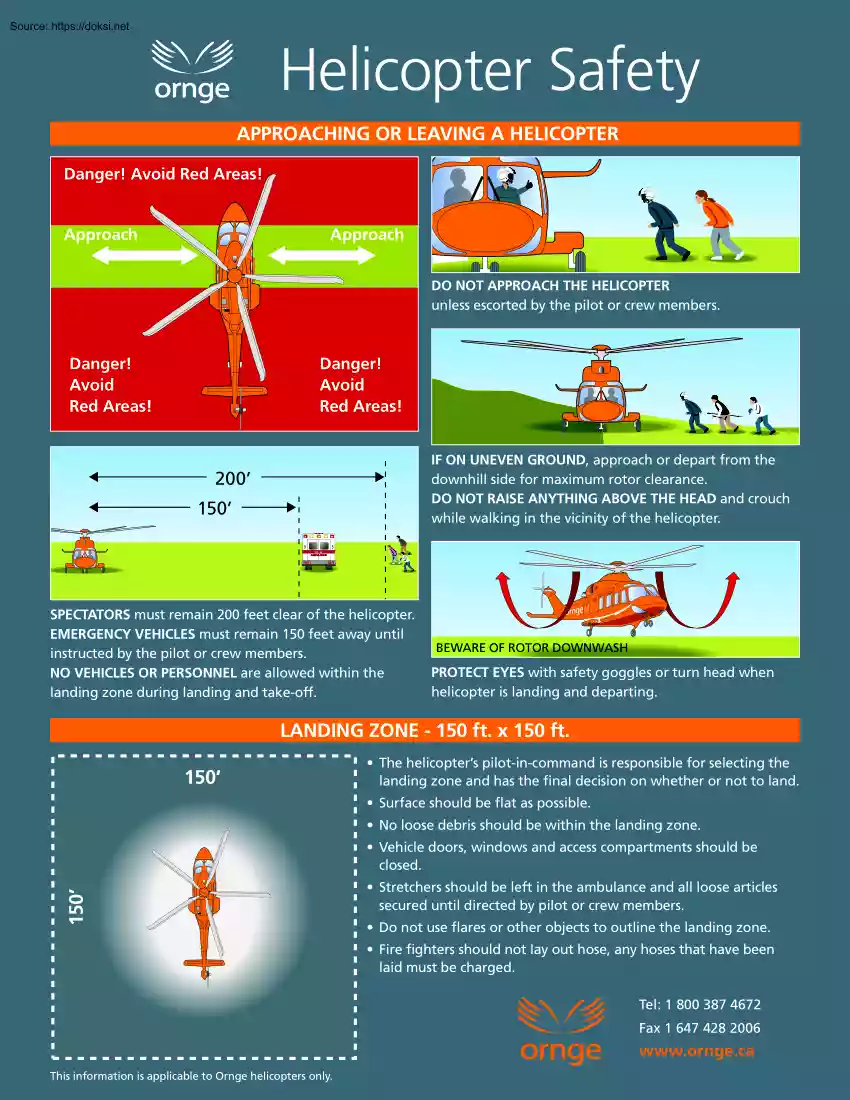Please log in to read this in our online viewer!

Please log in to read this in our online viewer!
No comments yet. You can be the first!
What did others read after this?
Content extract
Helicopter Safety APPROACHING OR LEAVING A HELICOPTER Danger! Avoid Red Areas! Approach Approach DO NOT APPROACH THE HELICOPTER unless escorted by the pilot or crew members. Danger! Avoid Red Areas! Danger! Avoid Red Areas! IF ON UNEVEN GROUND, approach or depart from the downhill side for maximum rotor clearance. DO NOT RAISE ANYTHING ABOVE THE HEAD and crouch while walking in the vicinity of the helicopter. 200’ 150’ AMBULANCE SPECTATORS must remain 200 feet clear of the helicopter. EMERGENCY VEHICLES must remain 150 feet away until instructed by the pilot or crew members. NO VEHICLES OR PERSONNEL are allowed within the landing zone during landing and take-off. BEWARE OF ROTOR DOWNWASH PROTECT EYES with safety goggles or turn head when helicopter is landing and departing. LANDING ZONE - 150 ft. x 150 ft 150’ • The helicopter’s pilot-in-command is responsible for selecting the landing zone and has the final decision on whether or not to land. • Surface should be
flat as possible. • No loose debris should be within the landing zone. 150’ • Vehicle doors, windows and access compartments should be closed. • Stretchers should be left in the ambulance and all loose articles secured until directed by pilot or crew members. • Do not use flares or other objects to outline the landing zone. • Fire fighters should not lay out hose, any hoses that have been laid must be charged. Tel: 1 800 387 4672 Fax 1 647 428 2006 www.orngeca This information is applicable to Ornge helicopters only
flat as possible. • No loose debris should be within the landing zone. 150’ • Vehicle doors, windows and access compartments should be closed. • Stretchers should be left in the ambulance and all loose articles secured until directed by pilot or crew members. • Do not use flares or other objects to outline the landing zone. • Fire fighters should not lay out hose, any hoses that have been laid must be charged. Tel: 1 800 387 4672 Fax 1 647 428 2006 www.orngeca This information is applicable to Ornge helicopters only




